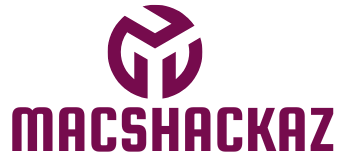Imagine a world where your fridge knows when you’re out of milk and orders more before you even realize it. That’s not just a futuristic dream; it’s the magic of the Internet of Things (IoT). As technology evolves, so do the opportunities for businesses and individuals to tap into this interconnected universe. IoT isn’t just about smart gadgets; it’s a gateway to innovation, efficiency, and, let’s face it, a little extra convenience in life.
Table of Contents
ToggleOverview Of IoT Opportunities
IoT offers extensive opportunities across various sectors. Smart homes require connected devices for automation, enhancing convenience and energy efficiency. Healthcare experiences transformative changes through remote monitoring, allowing professionals to track patient health in real-time.
Manufacturing industries benefit from predictive maintenance, reducing downtime and improving operational efficiency. Smart sensors enable real-time data collection, leading to informed decision-making. Retail environments apply IoT for personalized customer experiences, utilizing data to tailor services and inventory management.
Transportation gains momentum with smart logistics. Fleet management systems optimize routes and reduce fuel consumption through real-time tracking. Agriculture utilizes IoT for precision farming, enhancing crop yield and resource management via soil and crop data analysis.
Cities implement smart infrastructure, improving traffic flow and resource allocation. Connected streetlights and waste management systems optimize energy consumption and enhance urban living. The energy sector leverages IoT for grid management, maximizing efficiency and integrating renewable sources.
The security domain uses IoT for surveillance and threat detection. Connected devices detect unusual activities, providing timely alerts to prevent incidents. Educational institutions benefit from IoT-enhanced learning environments, promoting personalized education and efficient resource management.
Investment potential in IoT remains robust. Entrepreneurs pursue innovative applications, developing startups to harness the technology’s possibilities. Governments support initiatives to foster IoT development, creating frameworks for growth and collaboration.
Overall, IoT creates a landscape ripe with opportunities, impacting daily life and enhancing operational capabilities across diverse industries.
Key Sectors Benefiting From IoT

Numerous sectors are experiencing substantial benefits from IoT technology, enhancing efficiency and innovation in various applications.
Healthcare Innovations
Remote patient monitoring has become a cornerstone of healthcare innovations due to IoT. Devices track vital signs in real time, allowing healthcare providers to respond quickly to changes. Wearable technologies, such as smartwatches, enable continuous health monitoring, providing crucial data. Telehealth services thrive from these advancements, increasing access to care for patients in remote locations. Hospitals utilize IoT to streamline operations, reducing wait times and optimizing resource allocation.
Smart Agriculture
IoT applications in agriculture promote precision farming to maximize yields. Sensors monitor soil moisture and nutrient levels, enabling farmers to apply water and fertilizers efficiently. Drones provide aerial imagery for crop health analysis, offering valuable insights into field conditions. Automated irrigation systems work seamlessly with IoT technologies to conserve water usage. These innovations empower farmers to make data-driven decisions for sustainable farming practices.
Industrial Automation
IoT fuels the transformation of industrial automation. Smart sensors gather real-time data from machines, allowing for predictive maintenance and minimizing downtime. Connected devices improve supply chain management, enabling better tracking of inventory levels. Robotics integrate with IoT systems to enhance production efficiency and flexibility on the factory floor. Overall, these developments lead to reduced operational costs and enhanced competitiveness in the manufacturing sector.
Challenges In Harnessing IoT Opportunities
Multiple challenges exist when harnessing IoT opportunities, impacting deployment and scalability.
Security Concerns
Security concerns pose a significant barrier in IoT implementation. Vulnerabilities in connected devices expose sensitive data to unauthorized access. Cyberattacks can happen through compromised devices, leading to potential breaches in privacy. A major study found that 70% of IoT devices are susceptible to attacks. This threat necessitates robust security protocols and regular updates to safeguard users and businesses. Additionally, ensuring end-to-end encryption remains critical for maintaining data integrity. Addressing these challenges requires collaboration between device manufacturers and cybersecurity experts.
Integration Issues
Integration issues complicate the seamless operation of IoT systems. Devices from various manufacturers often lack standardization, which can hinder compatibility. This fragmentation leads to increased costs and extended deployment timelines. A survey reported that 40% of organizations struggle with integrating their IoT solutions effectively. Legacy systems create additional barriers, making it challenging to incorporate new technologies into existing infrastructures. Overcoming these integration challenges hinges on developing open standards and fostering collaboration among technology providers. Ensuring that various devices communicate effectively enhances the overall efficiency of IoT systems.
Future Trends In IoT Opportunities
Innovations within IoT continue to evolve, highlighting key trends shaping its future opportunities. The integration of advanced technologies enhances IoT capabilities across multiple sectors.
AI and Machine Learning Integration
AI and machine learning drive enhanced data analysis, enabling quicker decision-making processes. Algorithms analyze vast amounts of data generated by IoT devices, allowing for real-time insights and automation of tasks. Organizations improve operational efficiencies through predictive analytics, which aids in anticipating equipment failures before they occur. Additionally, personalized user experiences emerge as AI tailors interactions based on individual preferences and behaviors. By leveraging AI, businesses transform raw data into actionable strategies, fostering innovation and efficiency.
Expansion of 5G Networks
5G networks significantly enhance IoT applications by providing faster and more reliable connectivity. The increased bandwidth supports millions of devices simultaneously, making it ideal for smart city initiatives and enterprise solutions. Latency reduction improves applications that require real-time processing, such as autonomous vehicles and remote healthcare systems. Expanding coverage allows rural and underserved regions to adopt IoT technologies, promoting economic growth and accessibility. As 5G adoption accelerates, it paves the way for novel applications, further integrating IoT into everyday life.
The Internet of Things opens a world of possibilities that can reshape industries and enhance everyday life. As businesses and individuals embrace connected technologies, they’ll discover new ways to innovate and streamline operations. The blend of IoT with advanced technologies like AI and 5G will drive further advancements, paving the way for smarter solutions.
While challenges such as security and integration remain, the potential rewards far outweigh the risks. By prioritizing robust security measures and fostering collaboration among technology providers, stakeholders can unlock the full benefits of IoT. The future is bright for IoT, and those ready to adapt will find themselves at the forefront of this technological revolution.




